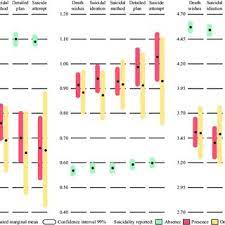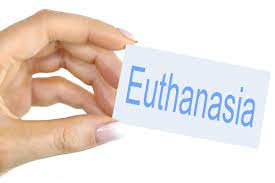Ethical Contemplations on Suicide and Euthanasia, and Moral Dilemmas
Suicide and Euthanasia
The discussion surrounding the moral implications of suicide and euthanasia has been a longstanding ethical and philosophical inquiry. These topics evoke deep emotions, ethical dilemmas, and diverse perspectives that intersect with personal, cultural, religious, and societal beliefs. This essay censoriously reflects on the analysis of the sin of suicide and euthanasia, drawing insights from topic readings and the lecture, and subsequently explores the validity of these viewpoints.
The Analysis of Suicide

In many cultural and religious contexts, suicide has historically been considered a sin. It is frequently perceived as interfering with the natural course of life and death, violating the inherent value of human existence. From a religious standpoint, suicide is condemned as a defiance of the divine plan and a rejection of the gift of life. This perspective is particularly prevalent in Christianity, where taking one’s own life is seen as a transgression against the sanctity of life and God’s authority over it.
However, contemporary discussions on suicide extend beyond religious boundaries and delve into the complexities of mental health, autonomy, and compassion. The analysis of suicide has evolved to consider the profound impact of mental illnesses and emotional distress on an individual’s capacity to make rational decisions. Mental health conditions can cloud judgment, leading to hopelessness and despair that may culminate in suicidal thoughts or actions. This shift in perspective underscores the need for empathy, understanding, and adequate mental health support rather than mere condemnation.
The Analysis of Euthanasia

Euthanasia, or the deliberate act of ending a person’s life to relieve their suffering, is another contentious topic in ethics. It is often categorised into involuntary euthanasia (another party makes the decision, a medical professional or a family member) and voluntary euthanasia(the individual consciously chooses to end their life).
Views on euthanasia differ significantly based on cultural, religious, and ethical backgrounds. In some interpretations, euthanasia is seen as an act of compassion, allowing individuals to die with dignity and alleviate their suffering when medical interventions are futile. Advocates argue that it respects a person’s autonomy over their own body and life, upholding their right to decide the timing and manner of their death.
However, opponents of euthanasia argue that intentionally causing death contradicts the fundamental duty of healthcare professionals to preserve life. It can also be seen as a slippery slope, potentially leading to involuntary euthanasia or ethical dilemmas about when to intervene. Furthermore, the analysis of euthanasia raises concerns about the potential for exploitation, especially in cases involving vulnerable individuals who may feel coerced into making such a decision.
Integration of Insights
The lecture and topic readings provide valuable insights into the complex ethical dimensions of suicide and euthanasia. Analysing these topics demands an all-inclusive approach that considers both the philosophical underpinnings and the real-world implications.
The lecture emphasises the importance of empathy and understanding when discussing suicide. It highlights the need to consider mental health as a critical factor in decision-making, recognising that a person’s judgment can be clouded by emotional turmoil. This aligns with the contemporary perspective that seeks to address the underlying causes of suicidal thoughts rather than simply stigmatising them.
In the case of euthanasia, the lecture underscores the ethical dilemmas that arise due to conflicting values. The tension between preserving life and respecting autonomy is a central theme. Furthermore, the study draws attention to the cultural and societal factors influencing our perceptions of euthanasia, emphasising the need to engage in open dialogue and find common ground.
Personal Perspective
I agree with the evolution of the analysis of suicide and euthanasia. While I understand the historical, religious and cultural stances on these issues, I believe modern ethics should be more compassionate and responsive to the complexities of human suffering. Mental health challenges can distort an individual’s decision-making process, making blanket judgments counterproductive.
Similarly, in cases of euthanasia, I lean toward the perspective that emphasises individual autonomy and the alleviation of suffering. However, I acknowledge the need for stringent regulations, rigorous evaluation processes, and safeguards against potential abuse. The right to die with dignity should not compromise the responsibility to protect vulnerable individuals.
Conclusion Suicide and Euthanasia
Analysing the sin of suicide and euthanasia is a multifaceted journey that spans religious, philosophical, ethical, and cultural landscapes. While traditional viewpoints rooted in spiritual teachings are valid, modern discourse has evolved to incorporate a deeper understanding of human suffering, mental health, and individual autonomy. The lecture and topic readings highlight the importance of empathy, open dialogue, and nuanced ethical considerations when grappling with these complex topics. Ultimately, the evolution of these analyses reflects society’s growing capacity for compassion and empathy, even in the face of the most profound moral dilemmas.
References to Suicide and Euthanasia
Banović, B., Turanjanin, V. and Miloradović, A. (2017). An Ethical Review of Euthanasia and Physician-assisted Suicide. Iranian Journal of public health, [online] 46(2), pp.173–179. Available at: https://www.ncbi.nlm.nih.gov/pmc/articles/PMC5402774/.
Kelly, C. and Dale, E. (2011). Ethical perspectives on suicide and suicide prevention. Advances in Psychiatric Treatment, 17(3), pp.214–219. doi:https://doi.org/10.1192/apt.bp.109.007021.





